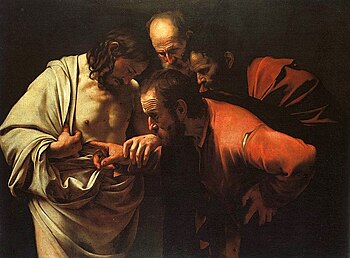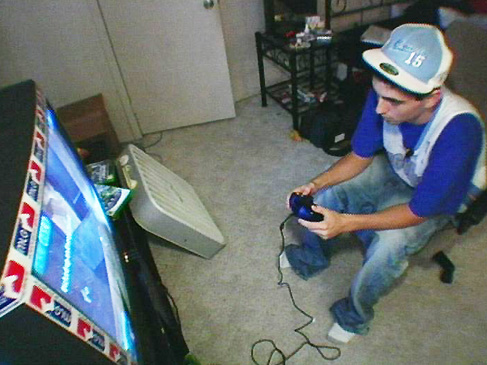Last night I preached (prought??) at a church on Matthew 5:8 "Blessed are the pure in heart, for they will see God."
I had soooo much fun; there was laughing, I pretended to be a sneaky Jesus, and there was even reference to the Trinity doing a Jewish dance with one of them held up on a chair. Nearly heretical but not quite and that makes all the difference :p
Anyways, here is the transcript. Have a ready if you would like :)
-----------------------------------------------------
Blessed are the pure in heart for they will see God.
I know you have been looking at the beatitudes for the last
few weeks, which I think is great! I love the beatitudes, they make me feel
pretty good when I am in pretty bad places. Like knowing that I am blessed when
I mourn, when I am persecuted, when I am struggling to make ends meet with
money. It makes me feel good, makes me happy to know that God has an eye out
for the weak and suffering.
Like I have this friend Albert who is a homeless guy. He
lives in the city and use to sit outside where I would work. I got to know him
pretty well as I would sit and share my lunch with him and it made me feel good
that God had his eye on this young man whose life had been so hard. I would
walk away each day knowing I left him in the best hands possible – God’s.
But this one, this verse, I find harder to talk about,
harder to feel good about.
Blessed are the pure in heart, for they will see God.
Being poor or mourning or persecuted are easy to see, easy
to feel that those people deserve their blessing.
But who of us are pure in heart??
I mean really? Can any of you say that during an average day
you don’t have naughty thoughts? That you don’t think of that guy or girl in a
way that you would be embarrassed to share about? That you don’t think nasty
thoughts about teachers or people who pick on you? Can you honestly say that
those thoughts don’t sneak up on you in a ninja attack in such a way that you
hope no one can read your mind?
Being pure in heart is a really big ask, and how can anyone
actually be pure or even know that they are?
Does that mean none of us will see
God?
Maybe looking closer at what Jesus was saying will help us.
Maybe if we step into 1st century Israel there will be a loop hole
or something.
So let’s go back in time a little.
 We are standing on a hill by the sea. The air is warm with the
multitude of bodies that surround us and press into us. Everything is dusty,
dust hangs in the air and clings to our clothes. The smell of salt and body
odour fills your nostrils and all around you is the noise of people murmuring
and being shushed, bodies shifting their weight from foot to foot, children
crying, and above it all, the sound of a lone male voice calling out that those
that are pure in their hearts will see God.
We are standing on a hill by the sea. The air is warm with the
multitude of bodies that surround us and press into us. Everything is dusty,
dust hangs in the air and clings to our clothes. The smell of salt and body
odour fills your nostrils and all around you is the noise of people murmuring
and being shushed, bodies shifting their weight from foot to foot, children
crying, and above it all, the sound of a lone male voice calling out that those
that are pure in their hearts will see God.
His statement shocks you. You look around and see your own
shock on the faces of those around you. You have been a good Jew for years,
gone to the temple to atone for your sins, prayed and given tithes. And you
know with certainty that no one at the temple or synagogue preaches like this.
The holy men that you get out of the way for in the street are pure because
they keep the hundreds of purity rituals. But you can’t do that, you have to
work, you have to get your hands dirty and sometimes you break the rules a bit
even though you try not to. You know you aren’t pure.
And this claim that people like you could see God is
laughable!!! Not even the priests get to see God, because seeing the face of
God, as every good Jew knows, means death. It is because no one is pure that
God cannot be seen. So what this preacher man is saying doesn’t make sense. He
makes it sound like that there are people who are pure in heart and, even more
astoundingly, that people can see God!
 What Jesus said that day in front of the crowd wasn’t just nice
sayings that made people feel good. They were radical statements about the
nature of humanity and the person of God. He effectively was turning the
religious teaching of the day on its head. He couldn’t have been more radical!
What Jesus said that day in front of the crowd wasn’t just nice
sayings that made people feel good. They were radical statements about the
nature of humanity and the person of God. He effectively was turning the
religious teaching of the day on its head. He couldn’t have been more radical!
But since then we have had 2000 years of people explaining
Jesus’ words to us so the impact has worn off a little bit. Now his words seem
like nice, feel good sayings to remind us that everyone is valuable.
But what if it meant something much much more? What if this
simple saying could changes lives?
Blessed are the pure in heart, for they will see God.
Many of the things I read around this passage went something
like this: “Live life seeking purity, living well and holy, and you will end up
seeing God when you die.” Nice sentiment, but I think this is really off the
mark.
For example, has anyone thought about how totally ironic
Jesus is being here?! Think about it. There he stands, God incarnate, telling
people who are sinners, who are broken, that the pure in heart will see God.
Yet he is God! The very people who are impure are looking at God! What seems
impossible is happening that very day!
How is this possible? The thousands that came to hear him
are not all pure in heart! And yet there they stand looking at the face of God.
There must be something that they, that we, are missing,
some vital link that Jesus forgot to explain.
Jesus, as he often does, is drawing on a story that is much
bigger than the time and place which he finds himself in at that moment.
Underlying all his words is the great story of God and his people. We can see
that throughout the Bible story people try to see God.
They build a tower at Babel and get scattered over the
earth.
The wrestle with a man from heaven and are given a lifelong
limp.
They ask to see God’s face and are given only a glimpse of
God’s back.
They try to be pure through their actions, their laws, their
words when the temple is rebuilt.
And they fail over
and over and over again.
They are like us.
We try hard to do our “Sunday best”.
We try not to swear, to think badly about others.
We try to forgive and to love.
And yet we fail, repeatedly and often in a spectacular
fashion! No one has managed to get it right, to live pure.
We are so good at trying to make rules and laws about how we
should live in order to be pure that we miss the bigger picture. We forget that
no matter how hard we try we will fall down. We forget that to love is much
more important than to follow social conventions. We forget that it is not
about keeping up appearances before each other.
We forget Jesus.
God took the initiative in something that he knew we would
never accomplish. God stepped down into our history as a man that told people
that it wasn’t about their actions, it was never about the actions, it is about
their hearts.
And because we will never get our hearts right, Jesus sorted that out
to. It is through him that we are made pure. It his through his life, death and
resurrection that our broken sinful nature is made clean. Paul tells us that we
are now holy, yet still being made holy. We have been proclaimed pure, and yet
still striving for purity.
It is the miraculous and wondrousness of God that through
his Son he sees us as sinless though we are still sinful!
Wow! That sounds totally complicated and ridiculous. At best
it sounds like I am talking in circles, at worst that I am a crazy person!
I spent ages trying to figure out how to explain this
better, and really I can’t do it by telling you all the theological who-ha, but
more through examples.
The Message Bible states this verse like this: “You are
blessed when you get your inside world – your mind and heart – put right. Then
you can see God in your outside world.”
There is the story of Princess Catherine of Hungary who took
pity on those who were poor and dying and so gave up her life of luxurious
wealth to feed the hungry, clothe the poor, and wash the dead in preparation of
burial. She believed in Jesus as the Christ and his message changed her heart.
And through that change she started to see God in the faces of the poor and
starving that lived in her country.
Then there is the story of the black woman in South Africa
whose son was killed during the years of apartheid by a young white man. At the
trial later she asked not for retribution but rather that the young white man
would come live with her and receive the love that she would have given her
son. She said that the message of Christ changed her heart towards the young
man.
 See, she had let God s message of love and forgiveness
change her heart and as a result she saw God in the face of the man who killed
her child. Forgiveness for the senseless act that ripped her family apart meant
that her heart and her mind weren’t filled with hate and anger. She had
forgiven those who had hurt her and, though the hurt was still there, saw that
everyone, even the man who had hurt her the most, was a child of God, someone
whom she could love and who could learn to receive that love.
See, she had let God s message of love and forgiveness
change her heart and as a result she saw God in the face of the man who killed
her child. Forgiveness for the senseless act that ripped her family apart meant
that her heart and her mind weren’t filled with hate and anger. She had
forgiven those who had hurt her and, though the hurt was still there, saw that
everyone, even the man who had hurt her the most, was a child of God, someone
whom she could love and who could learn to receive that love.
She saw reconciliation where others saw retribution.
She saw God where most people would see despair and death.
She saw love where others saw hate.
Or even my own story, one that has been filled with anger
and hate to the point where I was at the point of drinking myself to death. And
then I decided to give Jesus a go to see what he could make of me. I am no
longer angry, no longer hate filled, and I have learnt to love those that I
meet and see around me.
When the message of Jesus and the Spirit enter your life
change just happens. When you let go of the need to be in control and let a man
who loved and who forgives get inside your head with his ideas then your heart
starts to change; towards God, towards others and towards yourself. When you begin to accept the idea that God has
proclaimed you pure, your actions begin to reflect that purity.
Although it is impossible for us to have a pure heart in and
of ourselves, we can have a pure heart by the grace of God. What is impossible
for man is possible for God. A pure heart is a gift from God, and it comes by a
new birth, by a new creation, and by the Spirit living in us. We will
never be perfect. But the message that Jesus gives us isn’t that we have to
live to a strict set of rules to makes us perfect.
The greatest blessing and the noblest goal of the
Christian life is to know God, to experience His presence in our daily life,
and to live for His glory. Paul made this the goal for his life, as he said:
But whatever was to my profit I now consider loss for the sake
of Christ. What is more, I consider everything a loss compared to the
surpassing greatness of knowing Christ Jesus my Lord, for whose sake I have
lost all things. I consider them rubbish, that I may gain Christ and be found
in him … I want to know Christ and the power of his resurrection and the
fellowship of his sufferings, becoming like him in his death (Philippians
3:7-10).
Blessed are the pure in heart, for they will see God.
Blessed are you, for Christ died to make you pure, and
through him, you can see God.
Blessed are you for accepting Christ, for it will change the
way you view your world.
Blessed are you for acting out of the faith in your heart
and seeing the image of God on the faces of others.
Blessed are the pure in heart, for they will see God.
Let’s pray
May God help us to strive for a purity of heart that
transcends the division between interior and exterior that we so readily
construct in order to guard our true selves from others and to appear different
than we really are. May God help us to
live honestly and transparently before others.
Most of all, may God help us to acknowledge and depend upon him as the
only one who is truly pure, the one in whom we place our trust and in whom our
hope is found.






.jpg)


















